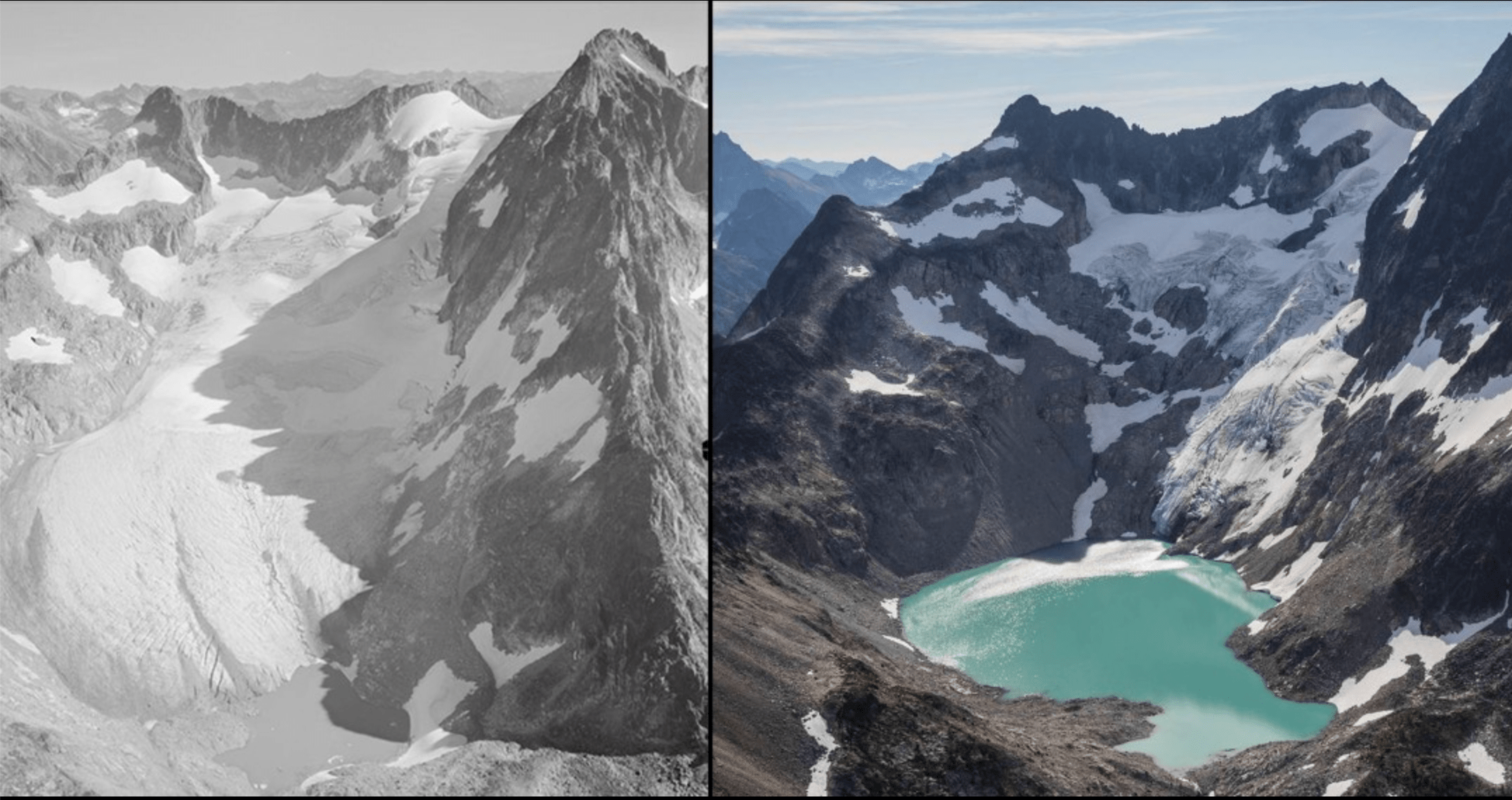
Did you know that the most glacier-concentrated terrain in the lower 48 is in the North Cascades National Park, located in the northern section of Washington state? In fact, this remote and wild National park embodies more glaciers than Glacier National Park (Montana) or any other National Park in the contiguous United States. There are over ~250 active glaciers contained within this park’s boundaries.
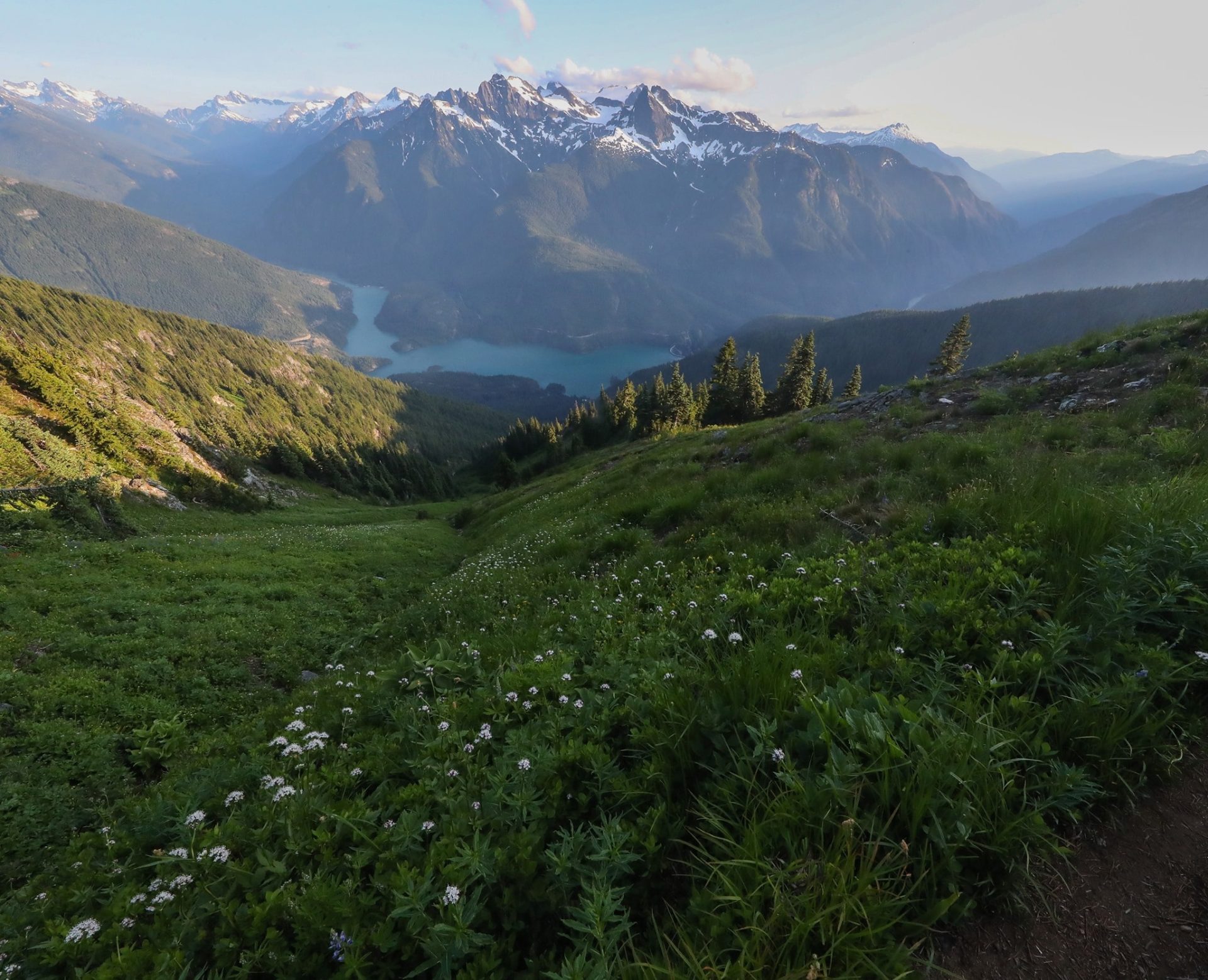
Before we dive into the heart of this intense and rugged glacial environment, let’s first touch on what a glacier is. A glacier is a large body of densely compacted snow, ice, and ground deposits that accumulate over time under ideal conditions (consistent heavy snowfall that exceeds the melting rate over years and decades). Due to the force of gravity and its own volume, it meanders down the slope, slowly chiseling away and carving out the surrounding landscape (1).
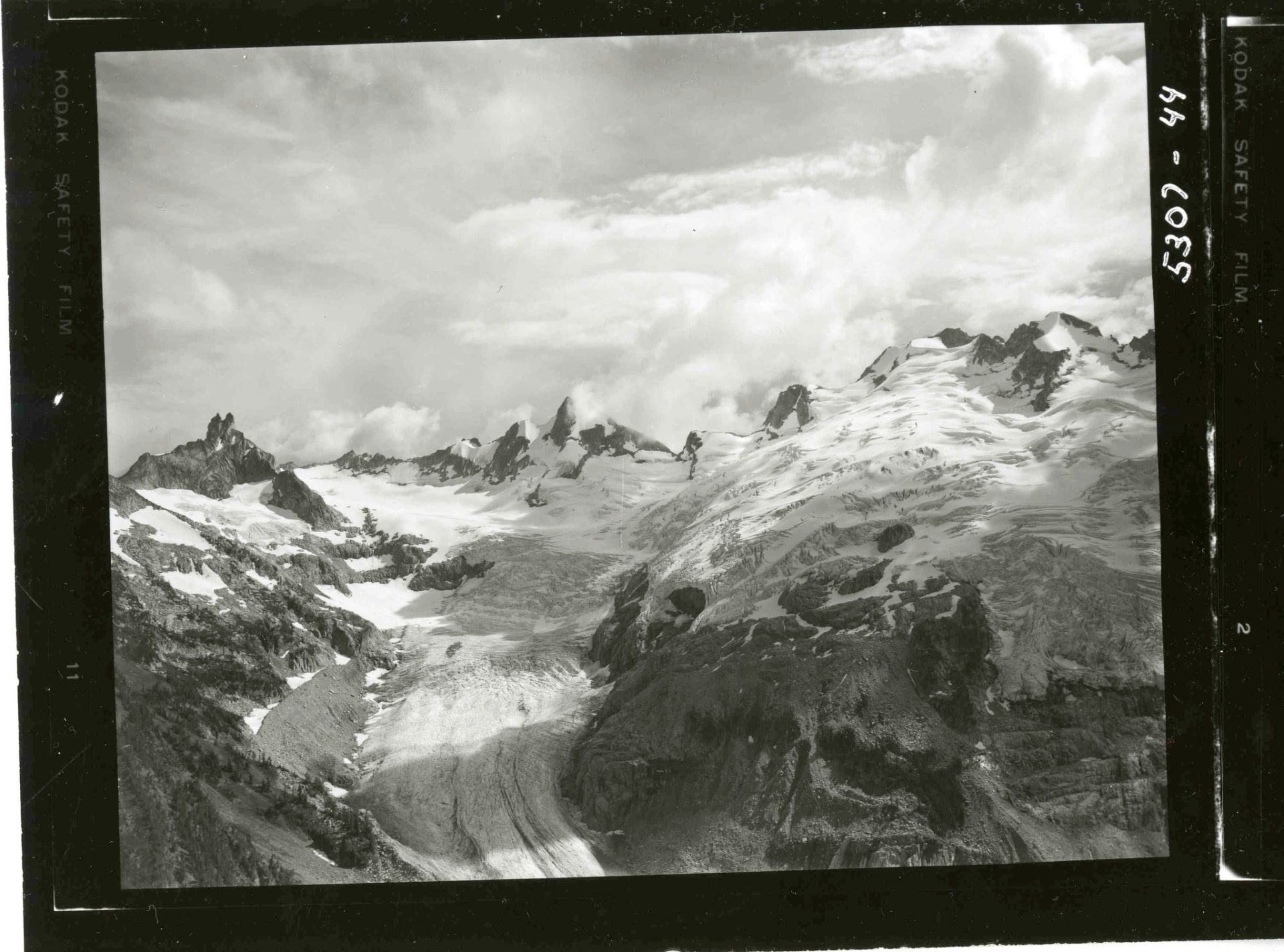
Now that you have a better understanding of the makeup of a glacier let’s look at how some of the largest glaciers are shaping up in today’s ever-changing climate. I want to make a quick note that since there are over 250 glaciers in North Cascades Park, I have specifically decided to hone in on a few noteworthy glaciers in the park versus addressing every single one. I digress.
The first glacier I want to highlight is presently the largest glacier in the park. It’s called Boston Glacier, which sits at around 1 mile long and 3.5 miles wide. This impressive glacier stretches from Forbidden to Boston Peak, then makes its way east over to Buckner Mountain, forming this deep cirque that’s positioned for the most part to the northeast.
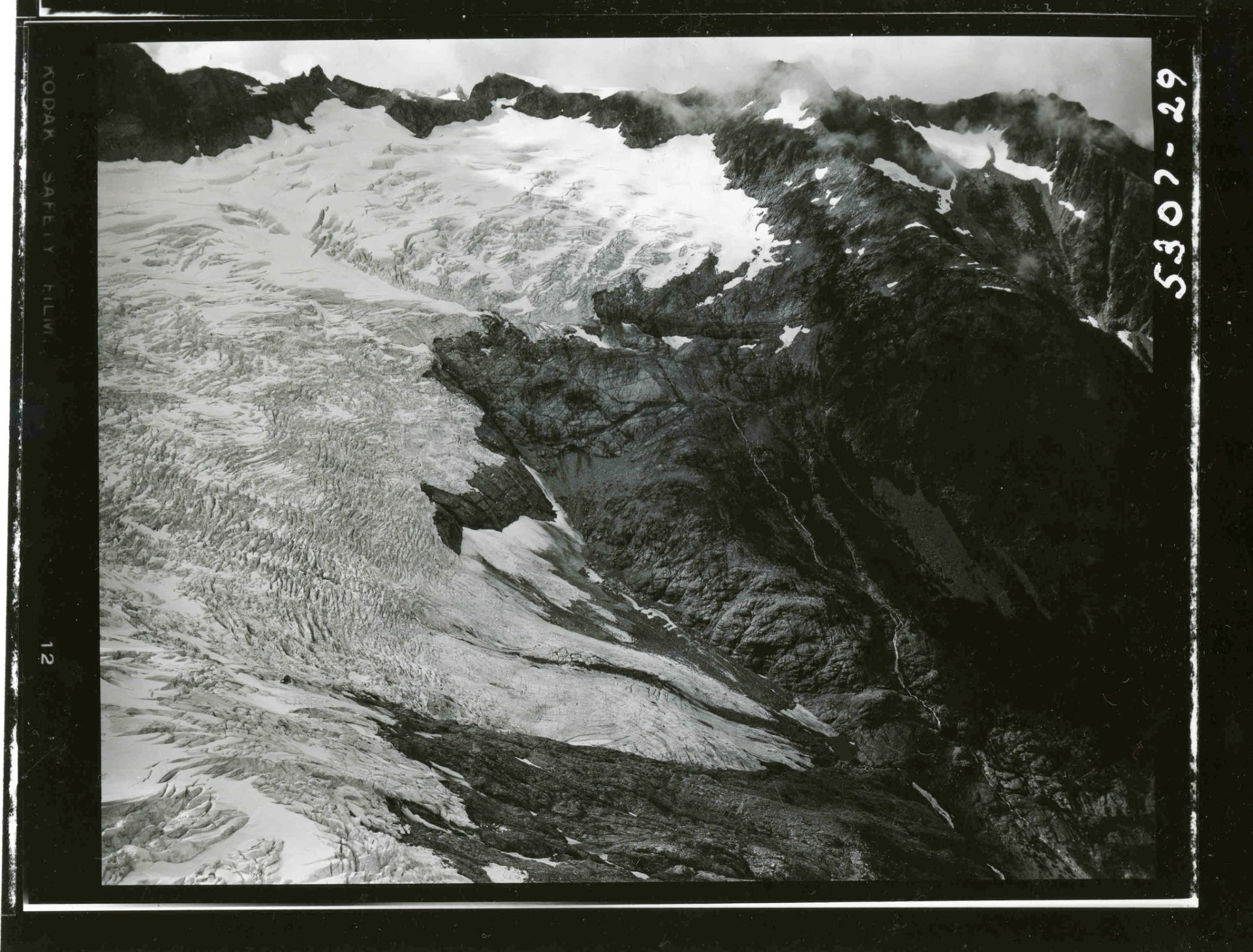
According to the latest glacial research/monitoring, the Boston glacier is presently in a state of retreat. Will this giant hang on in the face of this changing climate? Only time will tell…
The next large body of ice I want to highlight in the North Cascades is the largest lowest-elevation glacier remaining in the park. It’s called the Columbia Glacier, which occupies a large cirque just above Blanca Lake (~3950 ft). What makes this glacier unique and somewhat resistant to climate change is the fact that it’s nestled between Columbia, Monte Cristo, and Kyes Peak. All of these neighboring peaks are over 7,000 ft. in elevation. This placement provides the perfect environment to feed big snowfall amounts. This area is a prime spot for heavy avalanche accumulation too.
To bring things to a close, I want to share this quote that deeply resonated with me. I hope it does for you too!
“Where the glacier meets the sky, the land ceases to be earthly, and the earth becomes one with the heavens; no sorrows live there anymore, and therefore joy is not necessary; beauty alone reigns there, beyond all demands.”
– Halldór Laxness
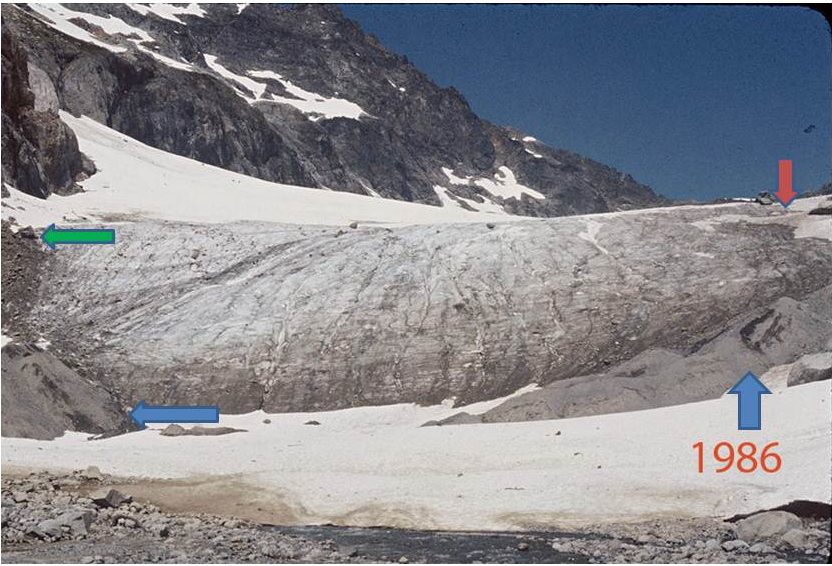
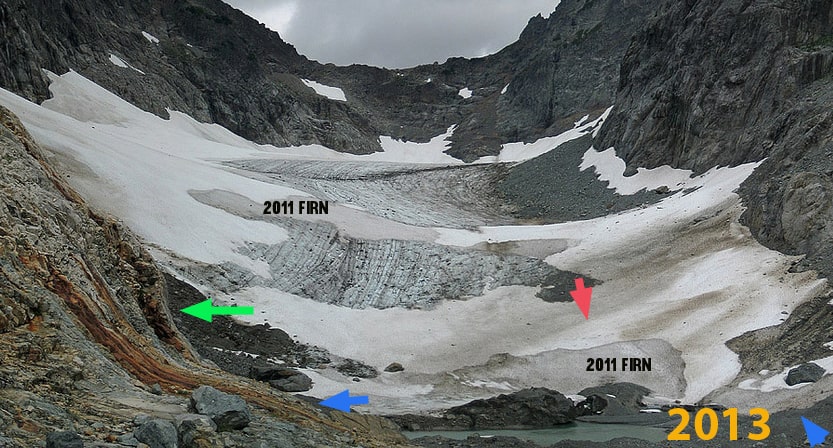
- Harris, S. L. (2006). Fire mountains of the west: The Cascade and Mono Lake Volcanoes (3rd ed.). Mountain Press Publishing Co.